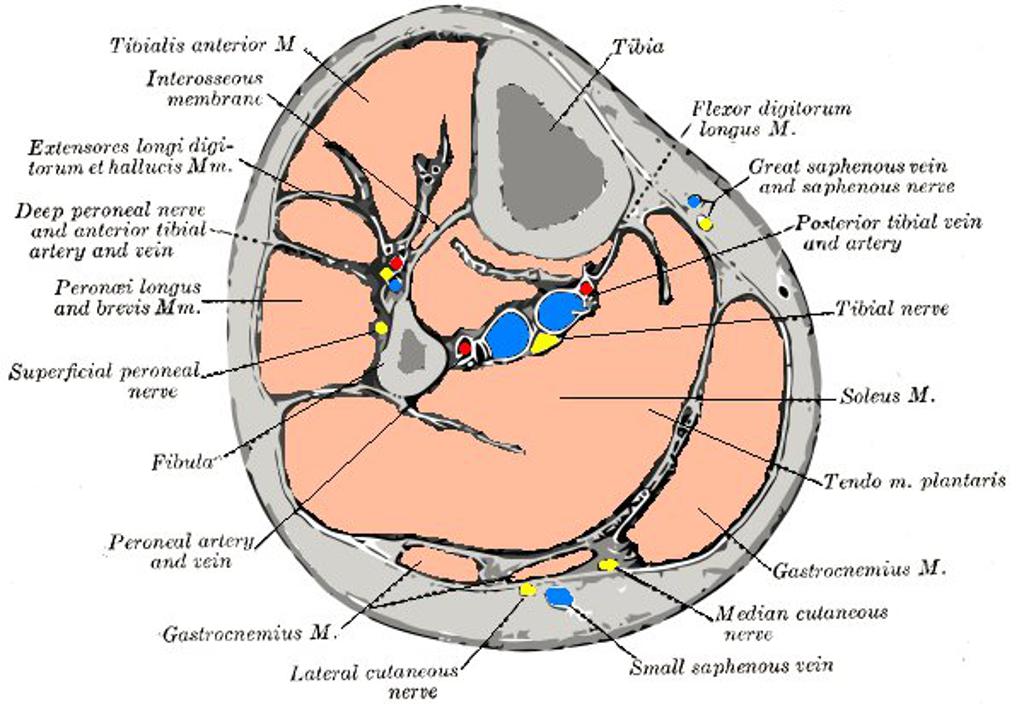Difference between revisions of "ANTERIOR COMPARTMENT OF LEG"
From NeuroRehab.wiki
(Imported from text file) |
(Imported from text file) |
||
| Line 1: | Line 1: | ||
[[Summary Article|<h5>'''SUMMARY'''</h5>]] | [[Summary Article|<h5>'''SUMMARY'''</h5>]] | ||
<br/>1. Space b/w the deep fascia and interosseous membrane. | <br/>1. Space b/w the deep fascia and interosseous membrane. | ||
<br/> | <br/> 2. Bounded medially by the tibia and laterally by the fibula & anterior intermuscular septum. | ||
<br/>3. 4 Muscles - tibialis anterior, extensor halucis longus, extensor digitorum longus, peroneus tertius. The tendons of these muscles pass beneath the <i>superior extensor retinaculum </i>to enter the foot. | <br/>3. 4 Muscles - tibialis anterior, extensor halucis longus, extensor digitorum longus, peroneus tertius. The tendons of these muscles pass beneath the <i>superior extensor retinaculum </i>to enter the foot. | ||
<br/>4. Others - deep peroneal nerve, anterior tibial vessels. | <br/>4. Others - deep peroneal nerve, anterior tibial vessels. | ||
Revision as of 12:45, 27 December 2022
SUMMARY
1. Space b/w the deep fascia and interosseous membrane.
2. Bounded medially by the tibia and laterally by the fibula & anterior intermuscular septum.
3. 4 Muscles - tibialis anterior, extensor halucis longus, extensor digitorum longus, peroneus tertius. The tendons of these muscles pass beneath the superior extensor retinaculum to enter the foot.
4. Others - deep peroneal nerve, anterior tibial vessels.

Image: Case courtesy of Dr Jeremy Jones, Radiopaedia.org. From the case rID: 36325 [Accessed 12 Apr. 2019].
Reference(s)
R.M.H McMinn (1998). Last’s anatomy: regional and applied. Edinburgh: Churchill Livingstone.
Gray, H., Carter, H.V. and Davidson, G. (2017). Gray’s anatomy. London: Arcturus.